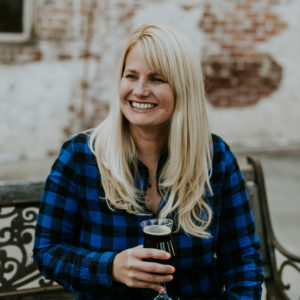When I saw that the topic of Blog Action Day this year was poverty, I knew I wanted to participate. When most people think about poverty and food the issues of discussion usually turn to world hunger.
I tend to be a person who is always in the middle. I see both sides to many stories. Similarly I try to practice balance especially when it comes to nutrition and exercise. There are a few exceptions, but in most cases you aren’t likely to find me at the extremes on either end of the spectrum.
So it is probably no surprise that when it comes to this issue my interests lie with those in the middle. Those people that hover around the poverty line. Perhaps those on food stamps or enrolled in WIC who struggle to make ends meet.
I was incredibly fortunate to have the job I fell into out of grad school. It changed my views of health in many ways. I’ll explain it and how it relates to this post later. First let me tell you the moment I realized my good fortune.
Right before leaving to make my move abroad I was asked to participate in a research focus group about sustainable practices. It turned out the professors were developing best practices for motivating people to become more green with their daily habits.
After about 5 minutes into the session I realized that I was surrounded by a group of college kids who were a bit on the privileged side and in some cases still spending daddy’s money.
They seemed to have simple solutions to every problem introduced. “Well, I recycle at our sorority,” “I only by organic produce,” or “Organic cotton is more expensive but it is totally worth it.”
I felt the need to play a bit of the devil’s advocate. The conversation had begun to drive me crazy! I asked how they would convince someone struggling with money or on a very tight budget to buy something like organic produce to benefit their health and/or the environment.
The girl next to me piped up and said, “Well, I guess I am just lucky because my parents don’t care if I spend a little more money on organic foods because they think it is important.”
My first thought was how I felt sorry for her (in Kentuckian this is often expressed as ‘bless her heart’). I feared she may never understand the true impact of poverty and what it means to not have money for such things deemed important.
I really wanted to say, “What if the money isn’t there? What if buying organic meant no electricity that month? How do you promote health and green-ness to people who fall in that category?” I didn’t. At that point I gave up and spent the rest of the session listening and trying to learn from it.
The second feeling I had was one of gratefulness that I had the opportunity to use my skills in health to try to help those that do fall into this financial category.
So, about the job. After working several years in health clubs motivating people, training people and promoting the latest fitness trends, I got a job in academia at the state level in community-based health promotion; specifically physical activity programming.
I went from helping people whose biggest problem was overcoming schedules and laziness for getting to the gym, to trying to help people who would never be able to afford a gym membership in the first place.
I was faced with the question, “How do I share my healthy passions to convince people without time AND money that fitness and nutrition are important? Is it even possible to incorporate some of these practices without money?”
It’s true that there are many people who simply don’t choose health. They dig themselves into a hole financially spending beyond their means. They want to dine at fast food establishments 7 days a week and do as little moving as possible. Money is a barrier, but they don’t care anyway.
I believe that there are equally as many hardworking people who want health for their families, but their levels of income prevent them from making the healthiest choices. For example, fresh produce, gear for sport activities or internet access to self-teach about healthy habits. These are the people that interest me, the ones I want to help.
I guess what I want to say and what I wanted to show at that focus group is that all of us with this health knowledge and skill should remember those people. What are ways we can be healthy and green without money? How can we help them be healthy when they have other more important issues like domestic abuse, putting food on the table or a serious illness to deal with?
I think sometimes it is easy to be overly proud of being a healthy person. We often think that if we can do it, anyone can. Unfortunately, this isn’t always true.
I think overall I am just thankful for the resources I have that help me to be a healthy person. It is true that some actions are free and simple. At the same time knowledge and healthy foods have a monetary cost that some people simply can’t afford.







World Hunger Year co-founder Bill Ayers will be my guest on News Talk Online on Paltalk.com at 5 PM New York time today to talk about World Food Day.
Please go to my blog at http://www.garybaumgarten.com and click on the link to the show to talk to Ayers.
Thanks.
Wonderful post!!!
I am always heartened by the idea that sometimes eating healthy is actually the cheaper option. Organic beans and rice are cheaper than meat. Buying tea bags costs less than buying bottled juice. It doesn’t always have to be a choice between health and money.
A couple of things… excellent post… and I totally agree with Michelle. When it comes to healthy eating – there are alot of inexpensive options
Thanks for the comments. I agree, there are inexpensive healthy options out there. I think the problem lies in the gap of education on those options.
If you read most things related to health and food you will see all the high end ingredients – organic flours, produce, sugars. Its easy to say you can use other ingredients, but when an uneducated (on health) person sees this they will automatically give up because they don’t have the money.
A similar thing happens with exercise. The all or nothing approach is common. Just bringing up what I’ve witnessed in my experiences. My hope with food, health and poverty is that we can work on this part of health education and inform people that you can be healthy without money just as some of you have stated.